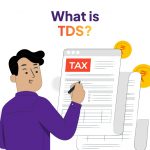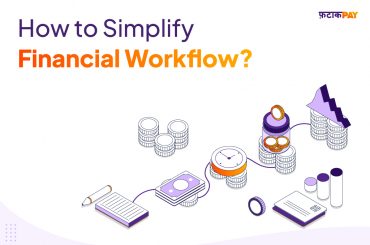Introduction to National Savings Certificate:
One of the most popularly used saving instruments is the National Savings Certificate. Investors have easy access to it because it is available at post offices. Conservative investors looking for low-risk investing opportunities to generate a steady income may want to have a look at NSC.
Key Features of National Savings Certificate:
| Investment Tenure | 5 Years |
| Interest Rate | 7.7% Compounded Annually |
| Minimum Investment | ₹1000 (multiples of ₹100 thereafter ) |
| Maximum Investment Limit | No Maximum Limit |
| Tax Benefit in a financial year | Up to ₹1.5 lakh as per Section 80C limit |
Additionally, the National Savings Certificate’s interest rate is assured and predetermined. The interest rate is subject to quarterly assessment and revision by the Ministry of Finance. Investors can get a tax benefit of up to Rs.1.5 Lakh.
Who can Invest in NSC?
All individuals, minors above 10 years of age, and legal guardians or parents on behalf of a minor can make investments in a National Savings Certificate. One can earn assured returns at the prevailing interest rate in NSC.
How and where can you buy NSC?
Currently, there are two ways to purchase the NSC scheme: electronically (e-mode) or through a passbook. You can acquire them at public sector banks, some permitted private institutions, or at a post office.
If your Internet Banking is activated, you can buy the NSC scheme online in e-mode with a savings account at an authorised bank or post office. The current NSC interest rate is 7.7% yearly compounded.
What is the NSC Certificate Number?
Every issued NSC certificate has a special certificate number that identifies it and includes important information like the post office branch that issued it. On the certificate, the NSC Certificate Number is clearly visible and can be used to verify the legitimacy and authenticity of the NSC investment.
Tax Benefits of NSC
NSC qualifies for its main tax break under Section 80C of the Income Tax Act. This enables investors to take advantage of the Section 80C tax deduction of up to Rs. 1.5 lakh every fiscal year. However, in addition to life insurance premium payments, this ceiling of 1.5 lakh for tax-saving investments also covers other alternatives like PPF, EPF, and ELSS Mutual Funds.
On NSC interest collected during the first four years of the investment, a secondary tax deduction benefit is payable. This is due to the NSC’s interest being reinvested for these four years. The interest received from NSCs is taxable at the applicable slab rate under the heading “Income from Other Sources” in the fifth year, or upon maturity.
Let’s use an illustration to better grasp this. Let’s imagine you invested Rs.5,000 in National Savings Certificates. As of right now, Section 80C permits you to deduct the initial investment amount in the first year. The interest of 385 will be recorded under the heading Income from Other Sources in the second year. However, Section 80C allows for a deduction for this sum. Similar to this, you can deduct the interest generated from the NSC until the year of maturity each year under Section 80C. The amount of interest that is paid out at maturity will be taxed according to your income tax rate bracket.
Features & Benefits of NSC
Here are some of the main characteristics and advantages of National Savings Certificates:
Fixed Income:
You may expect consistent and secure returns. The interest rate on National Savings Certificates right now is 7.7% annually. Additionally, the Government updates the tariffs every three months.
Compounding of Interest:
Interest is compounded annually and reinvested for the first four years after the investment is made. For the first four years, you may file a tax deduction. NSC interest in the final year is taxable because it wasn’t reinvested.
Nomination:
The investor has the option to nominate a member of their family or a minor. This guarantees that, in the event of the investor’s passing, the nominee will be able to inherit the maturity funds. The following are the nomination guidelines:
There can only be one nominee, unless the National Savings Certificate has a denomination of 500 or above.
If the nominee is a minor, the bank or post office should know who the guardian or other responsible adult is.
If a minor holds a National Savings Certificate, the nomination function is not available.
Investment option that is simple:
You can invest in National Savings Certificates by going to any post office or specific public and private banks. You only need to provide the necessary KYC documentation. The entire procedure is simple and easy.:
Tax benefit of NSC:
Section 80C allows for a deduction of up to 1.5 lakh rupees per financial year for investments made towards National Savings Certificates. You can therefore profit from tax benefits on your investments.
Low Risk:
National Savings Certificates are regarded as low-risk investment options and are thought to be the best choice for risk-averse investors because the Indian Government backs them.
Minimum Deposit:
Investors must make a minimum deposit of Rs.100 to begin investing in National Savings Certificates. There is no maximum investment amount; it can be in multiples of 100.
Loan facility:
Individuals may borrow money from banks using their National Savings Certificates as collateral.
Premature Withdrawal:
However, it can be acceptable in some cases. A court order or the death of the real investor are examples of this.
Modes & Types of NSC
The many ways that investors can hold National Savings Certificates are as follows:
Single Holder Type Certificate:
Single-holder certificates are exclusively given out to single individuals, as the name implies. He or she may suggest a candidate for the certification. However, the decision-making power rests with the original holder.
Joint ‘A’ Type Certificate:
Joint ‘A’ type certificates, which are granted to joint holders, or two adults, are available. The proceeds of the certificate are paid to both of these joint holders when it matures. Both people are involved in making decisions. The signature of both joint holders is necessary in order to appoint a nominee, cancel the nomination, or transfer the nominee.
Joint ‘B’ Type Certificate:
This sort of National Savings Certificate is also offered to two people. However, the primary distinction between type “A” and type “B” is that the maturity value in the latter is paid to any one of the joint holders. Type “B” retains the same decision-making and nomination rights as Type “A.”
Documents required for NSC
Completed NSC Application Form
Documentation used as identity proof, including a PAN, an Aadhaar card, and a driver’s licence.
Documentation that demonstrates an address, such as an Aadhaar card, a passport, a phone bill, etc.
Recent picture
Your desired investment amount in cheque or cash
How to Redeem NSC Certificate At Maturity?
You must sign into the Internet Banking account you used to obtain the NSC certificate if you want to redeem your e-NSC certificate. Once logged in, you may use the portal to submit a request for the redemption of your e-NSC certificate. The sum will be credited to your linked savings account after redemption is complete.
NSC v/s other Tax-Saving Schemes
| Particulars | Returns | Lock-in Period | Risk Profile |
| National Savings Certificate | 7.7% p.a. | 5 years | Low risk |
| Equity-Linked Savings Scheme | Market-linked. | 3 years | Moderately High |
| Public Provident Fund | 7.1% p.a. | 15 years | Low risk |
| Sukanya Samriddhi Yojana | 8% p.a. | 21 years | Low risk |
| Senior Citizen Savings Scheme | 8.2% p.a | 5 Years | Low risk |
| Unit Link Insurance Plan | Market-Linked | 5 years | Moderately High |
| National Pension Scheme | Market-Linked | Till retirement (60 years, extension can be availed up to the age of 70 years) | Moderately High |
| Fixed Deposits | 7% to 7.5% p.a. | 5 years | Low risk |
Additional links:
Thank you for reading our article! We hope this blog was informative. Here are some other blogs/LinkedIn articles for you to check out.
https://www.linkedin.com/pulse/what-nbfc-fatakpay/?trackingId=D2%2B1JHBR2HJnAYNnR2K8Rw%3D%3D
https://fatakpay.com/blog/what-is-a-demat-account/
https://fatakpay.com/blog/the-right-way-to-plan-your-retirement/
About FatakPay:
FatakPay provides virtual credit facilities for all. It’s available on your phone and caters to your everyday needs in both online and offline formats. Payments are done seamlessly through UPI/QR codes. The solution provides an almost zero cost, free, quick, transparent and secure way to transact in a multilingual format with a Scan Now, Pay Later facility and easy repayment options.
Link to FatakPay App: https://play.google.com/store/apps/details?id=com.fatakpay
Link to the Website: https://fatakpay.com/







